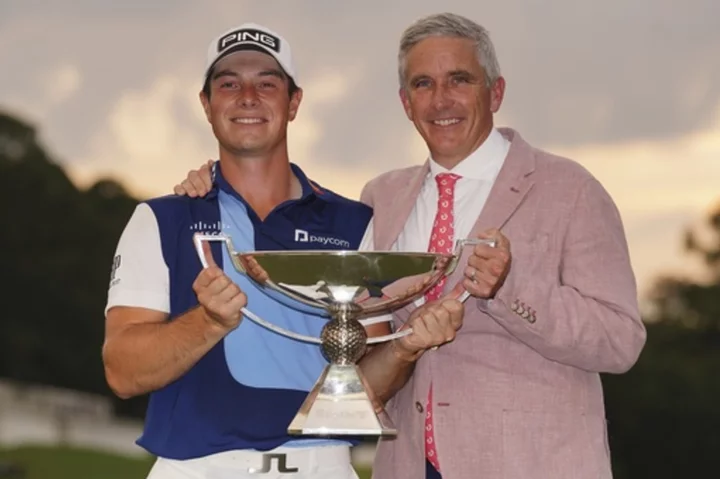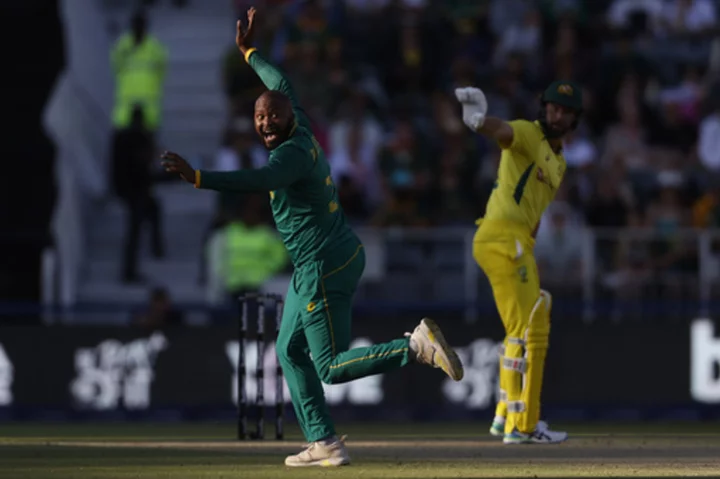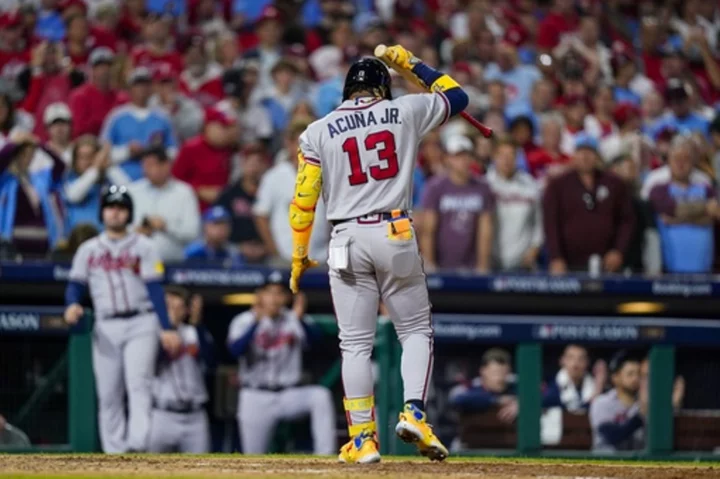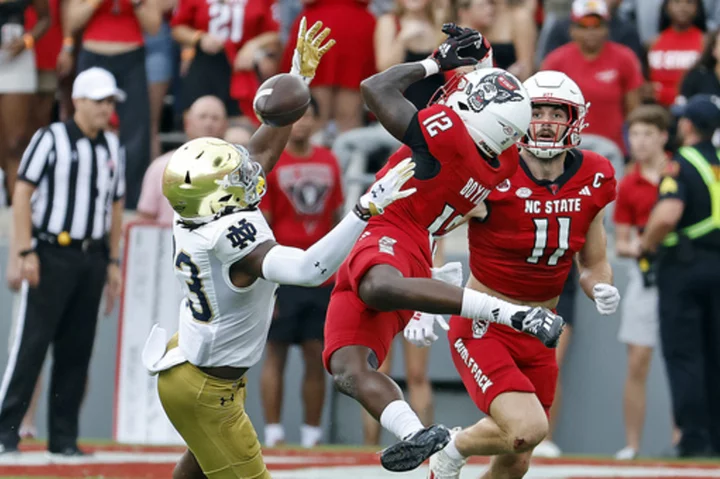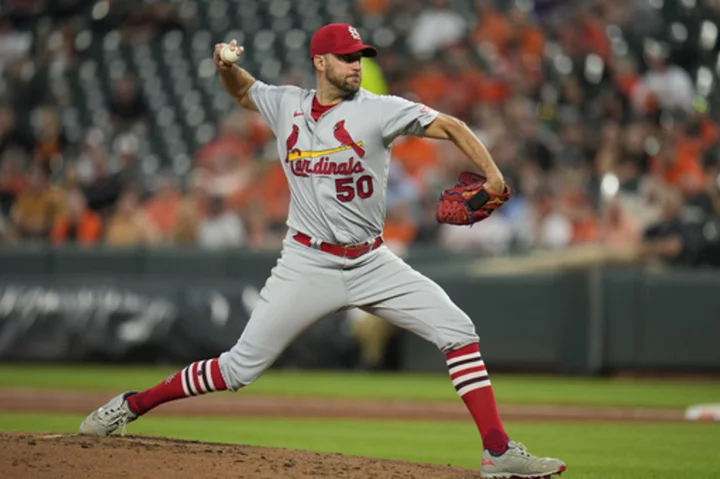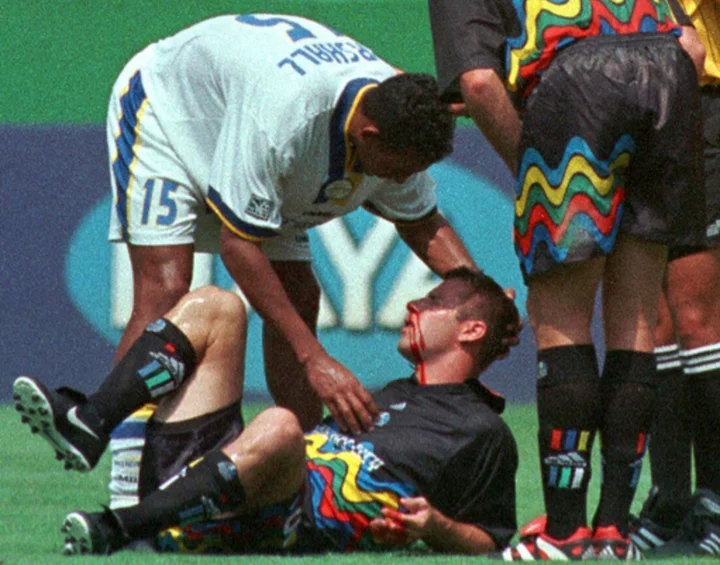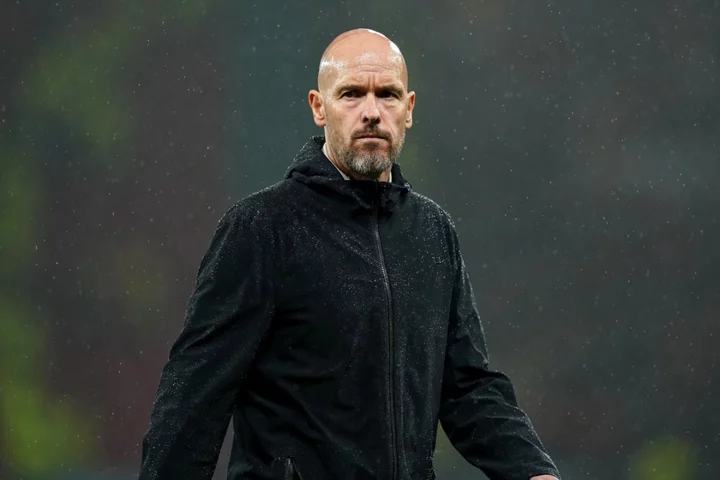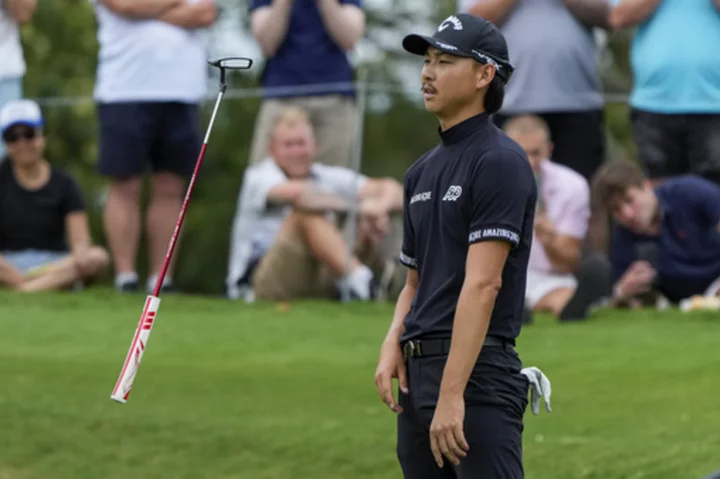ATLANTA (AP) — Tiger Woods was the richest guy in golf and played like he didn't have two nickels to rub together. That's one of many traits that made him so incomparable.
Just don't get the idea he wasn't in it for the money.
Woods won the first of his 82 titles on the PGA Tour in 1996 at the Las Vegas Invitational. He walked into the press room and glanced at the computer screen of an Associated Press writer who turned and asked him, "Like it?”
“I like this,” Woods replied, pointing to the reporter's reference of his $297,000 winner's check.
Then there was 2002 in Ireland at a World Golf Championship, which offered $1 million to the winner (back when $1 million meant something). Woods opened with a 65 and was asked if he would rather win that week or the following week at the Ryder Cup.
“Here this week,” he said. When asked why, Woods smiled and said, “I can think of a million reasons why.” The room erupted in laughter.
That seems like chump change now. Money will never be part of the legacy Woods leaves behind. But the more money there is in golf, the easier it is for players to forget the very reason they turned pro.
Money. And it rules the game more than ever.
Golf has never been in a greater state of chaos and disruption, all because of money.
Even as the PGA Tour ended a season with performances worth celebrating, it was hard to get away from the topic of money —increased prize funds, deals to stop paying legal fees, potential Saudi investments and inevitably more money for players.
Let's be clear: Players who chose not to join Saudi-funded LIV Golf are not on food stamps.
Xander Schauffele hauled in nearly $15 million this season, including his $6.5 million FedEx Cup bonus, without winning a tournament. Scottie Scheffler just finished his fourth season on the PGA Tour and he already has exceeded $50 million in earnings, including his FedEx Cup bonuses.
That's why it was so curious the final three weeks of the season to hear so many comments that it's not about the money. They were sincere, and at times credible.
British Open champion Brian Harman was asked if $20 million purses alone would have been enough to bring the best players together, instead of limited fields and referring to them as “signature events.” He doesn't think so.
“Because as much as money has been the topic of the discussion, a lot of guys out here — especially the guys that play to win — even when they win they couldn't tell you within a margin of error how much they won that week," Harman said.
The next day, Jon Rahm walked by and was asked what he was paid for winning the Masters.
“Zero clue,” he said.
Rahm surpassed $50 million in career earnings this summer. He has a lot of Tiger in him.
“It’s one of my pet peeves when they make this tournament all about money because I think it takes away from it,” Rahm said at the FedEx Cup finale.
It's clear there is so much money in golf that motivation comes more from winning majors, winning a FedEx Cup, winning anything.
But it's money that got golf into the mess with the proposed partnership with the Saudi backers of LIV Golf. The topic never goes away.
The latest reminder was on the 18th green at East Lake when Commissioner Jay Monahan introduced Viktor Hovland as the FedEx Cup champion. There was a smattering of boos and moans — nowhere near what Commissioner Roger Goodell gets on stage at the NFL draft, but a first for Monahan.
He went from criticizing Saudi money to embracing it. This was his first truly public appearance since that stunning turnaround.
Now his time is occupied on finalizing an agreement that will pour Saudi money — up to $1 billion, according to Senate testimony in July — into a for-profit company called PGA Tour Enterprises. There is a task force to figure out how to get the players more money.
All the while, Rahm won a green jacket and Harman drank Guinness out of a century-old claret jug. Nick Taylor won the Canadian Open with a putt heard across the Great White North. Rickie Fowler, Justin Rose and Jason Day ended long droughts.
The season ended on a high note — Hovland playing the final two tournaments at Olympia Fields and East Lake in 36-under par and cashing in. With his $18 million bonus, he made more than $32 million this year.
As great as he was on the course, Hovland was even better in explaining why money matters and when it doesn't.
“Obviously it’s a lot of cash you’re playing for. It's in the back of your mind,” he said. "But I live in Stillwater, Oklahoma. Money goes a long ways there. It’s not like I’m spending money out the wazoo every week. I don’t need a lot to be happy. I don’t need a lot to live within my means.”
It's not why he plays. It's a reward, not motivation, and that's how great ones think. Just don't expect everyone else to ignore money when that seems to be the solution to golf's problems.
___
AP golf: https://apnews.com/hub/golf

